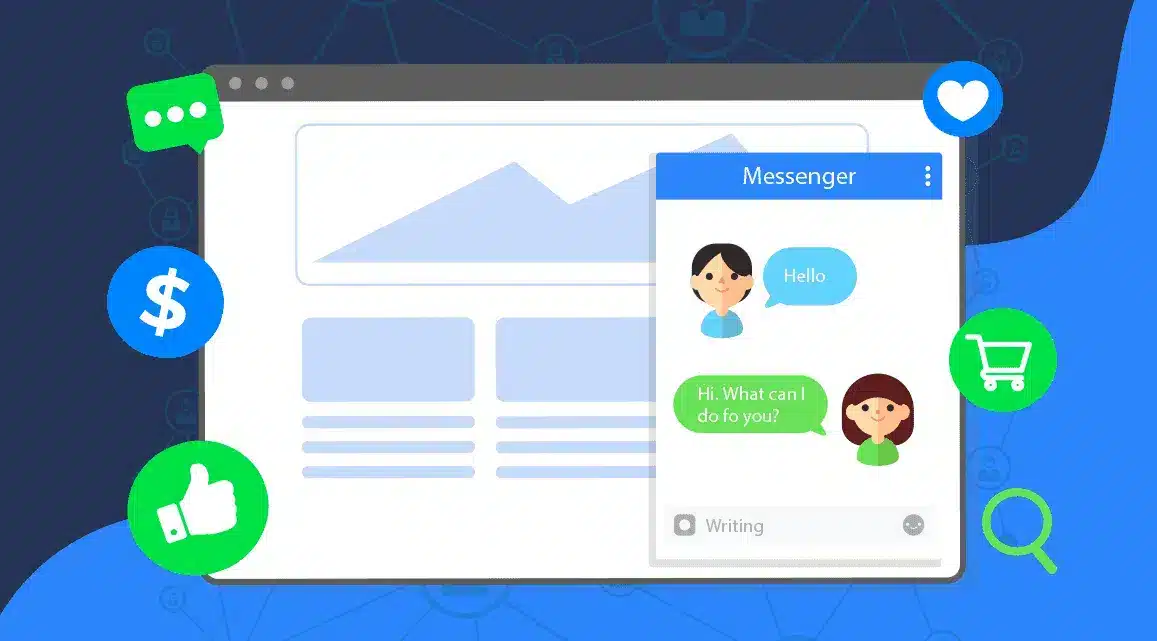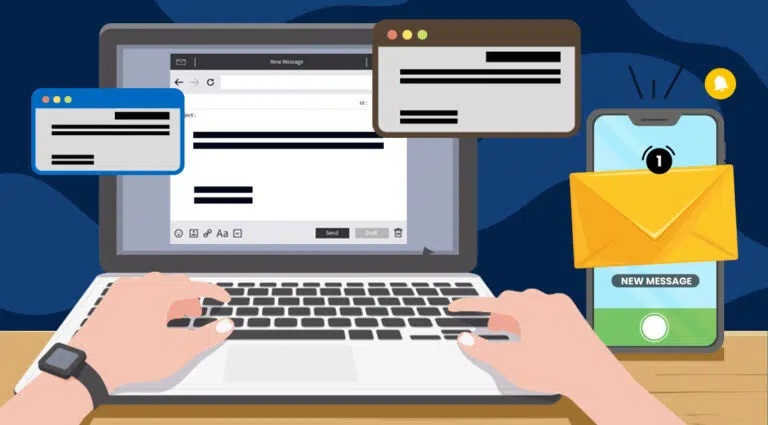
Table of Contents
Why You Should Be Adding Facebook Messenger to Your Website in 2025
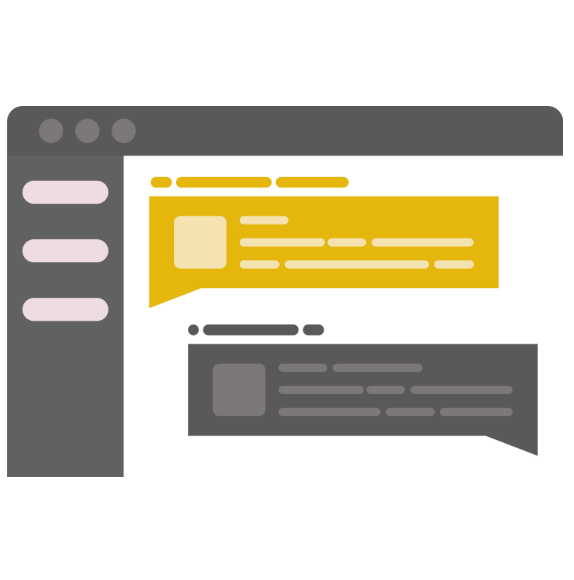
Adding Facebook Messenger to your website is one of the smartest ways to engage visitors, provide real-time support, and enhance your customer experience. With over 2.4 billion expected users, Facebook Messenger is now a preferred communication platform for businesses. By adding Facebook Messenger to your website, you can significantly improve customer interactions. Moreover, adding Facebook Messenger to your website helps create a more direct and personalised communication channel.
Consider the benefits of adding Facebook Messenger to your website for fostering better customer relationships and enhancing your overall service offerings.
By integrating Facebook Messenger directly into your site, you give users an easy way to contact you without filling out forms or waiting for email replies.
Integrating Facebook Messenger into your website not only increases engagement but also aligns with modern customer expectations for immediate assistance.
By adding Facebook Messenger to your website, you create a direct line of communication that simplifies customer interactions and boosts engagement. This action ensures that you are meeting user expectations for prompt responses.
Furthermore, adding Facebook Messenger to your website allows for seamless communication that can boost your brand’s visibility and customer satisfaction.
Ultimately, adding Facebook Messenger to your website facilitates easier access to support, ensuring your customers feel valued and heard.
Consider the benefits of adding Facebook Messenger to your website as it allows for immediate interaction and increased customer satisfaction.
What Is the Facebook Customer Chat Plugin?
This is particularly beneficial when adding Facebook Messenger to your website, as it provides a familiar interface for your customers.
In summary, adding Facebook Messenger to your website can lead to increased customer loyalty and retention.
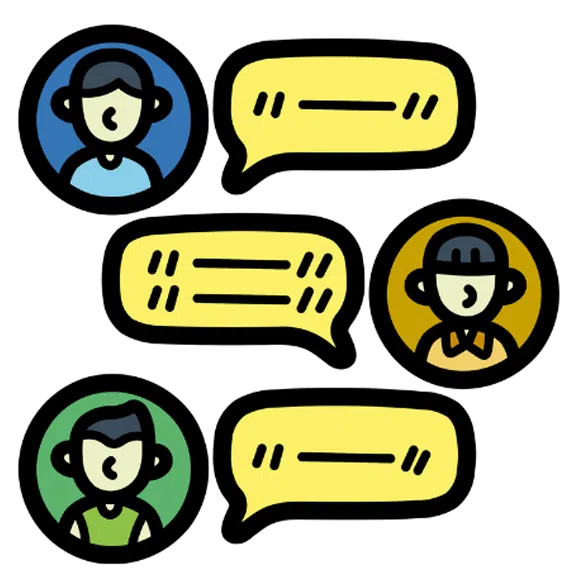
The Facebook Customer Chat plugin lets you seamlessly embed Messenger into your website. This enables site visitors to chat with your business just like they would on Facebook — with rich media, quick replies, and a persistent conversation history.
Whether you’re a small business owner or an eCommerce brand, adding Facebook Messenger to your website offers:
- Instant communication with customers
- A familiar chat interface users already trust
- Higher engagement and improved conversion rates
- Easy integration with WordPress and other CMS platforms
How to Add Facebook Messenger to Your Website (Step-by-Step)
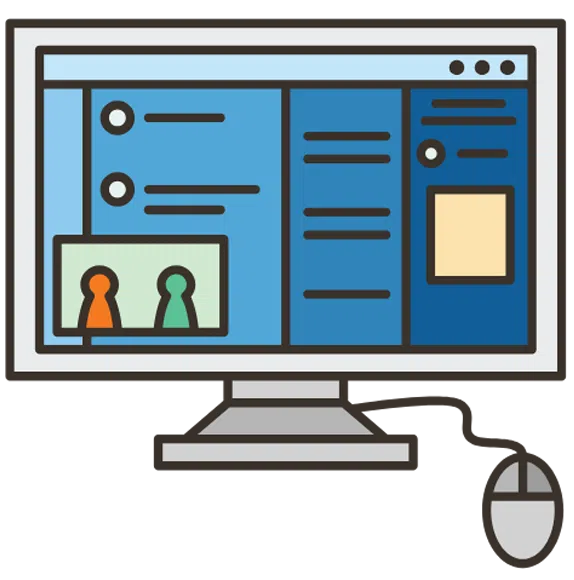
Option 1: Use Facebook’s Setup Tool
Follow these simple steps to install the Messenger Customer Chat plugin:
- Whitelist Your Domain
- Your site must be served over HTTPS
- Only fully qualified domain names are supported
- Generate the Plugin Code
Go to your Facebook Page Settings → Messaging → Add Messenger to your website → Use the setup tool. - Add the Plugin Code to Your Website
Insert this code snippet before the closing</body>tag: htmlCopyEdit<div class="fb-customerchat" page_id="<YOUR_PAGE_ID>"></div> - Customize Your Chat Widget
Optional attributes include:greeting_dialog_displaygreeting_dialog_delay
- Handle Postbacks and Referrals (Optional)
These advanced settings allow bots and analytics tools to respond to user actions or track where conversations originated.
Benefits of Adding Facebook Messenger to Your Website
Here’s why businesses prefer the Facebook Messenger widget over traditional live chat tools:
- Instant Access: Logged-in Facebook users can chat right away
- Conversation Persistence: Chat history stays in Messenger, even after users leave your site
- Cross-Device Compatibility: Works on both mobile and desktop browsers
- Easy Follow-Ups: Conversations are saved in your Facebook Inbox
- No Extra Login Required: Messenger uses the visitor’s existing Facebook account
- Browser Cache Support: Conversations pick up where they left off
- Multiple Plugin Customization Options
- Improved Conversions Through Real-Time Engagement
Common Issues When Adding Facebook Messenger to Your Website
Troubleshooting Tips:
- Console Error?
Ensure your domain is whitelisted and that theReferrer-Policyisn’t set tono-referrer. - Firefox Issues?
- The Facebook Container Add-on may block the plugin
- Private browsing disables content tracking — turn it off temporarily to test
- Still Not Working?
Plugin updates or third-party changes can affect performance. Check Facebook’s developer documentation regularly.
Get Help Installing Facebook Messenger on Your Website
Need help adding Facebook Messenger to your website? Our team at Virtual Innovation can assist you with seamless integration, customization, and troubleshooting.
💻 Need help with your digital presence?
We offer:
📞 Contact us today to elevate your brand online.
👉 [Book a Call Now] with our Auckland-based WordPress development team.

